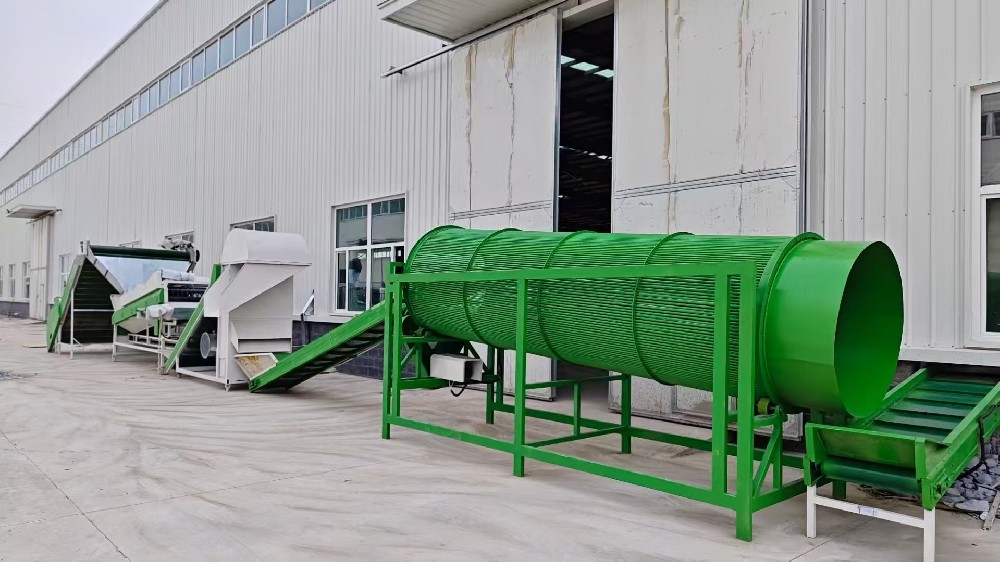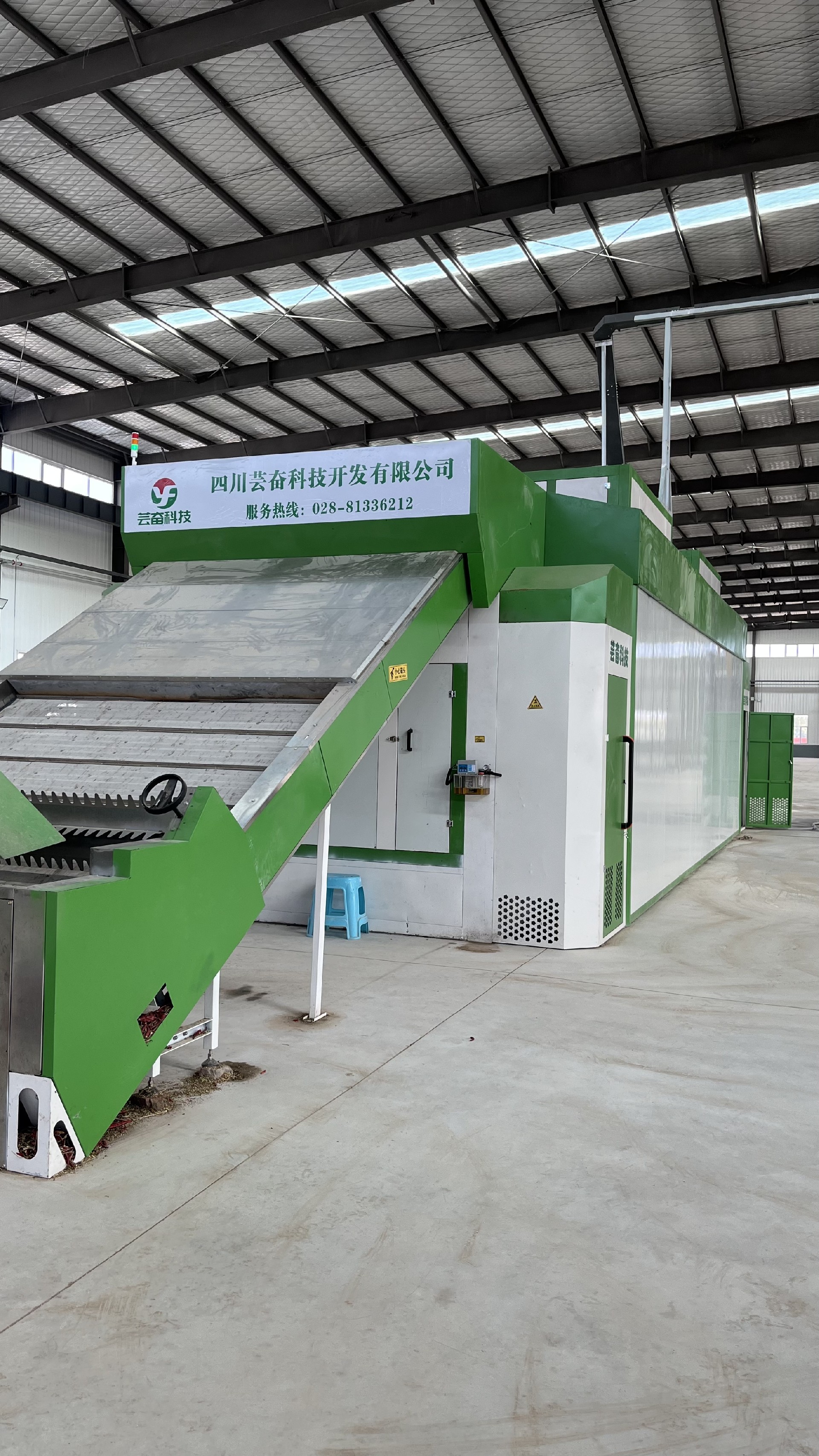- 2024-11-23 07:30:15
- source: 本站
Overcoming Food Processing Challenges with Industrial Food Dehydrators
Introduction
The food processing industry faces numerous challenges, from maintaining product quality and nutritional value to optimizing production efficiency and reducing waste. One of the innovative solutions that have gained prominence in recent years is the industrial food dehydrator. This technology not only enhances the preservation of food but also streamlines various processes, making it an indispensable asset for manufacturers.
Understanding the Industrial Food Dehydrator
An industrial food dehydrator is a specialized piece of equipment designed to remove moisture from various food products, including fruits, vegetables, meats, and spices. By utilizing controlled heat and airflow, these machines reduce water content while preserving the intrinsic flavors and nutrients of the food. This process significantly extends shelf life and ensures that products are available for consumers year-round.
Addressing Preservation Challenges
One of the primary difficulties in food processing is effectively preserving the quality and safety of products. Traditional methods, such as canning or freezing, can alter the taste and texture of the food, while also requiring energy-intensive resources.
Enhanced Preservation Techniques
Industrial food dehydrators use low temperatures under controlled conditions to eliminate moisture without compromising quality. This method helps to retain the color, flavor, and nutritional value of the food, while also minimizing the need for preservatives. By reducing water content, dehydrators create an environment where microbial growth is inhibited, thus prolonging the shelf life of the products and reducing food waste.
Improving Efficiency in Food Processing
Another significant challenge in the food processing industry is maintaining operational efficiency. High production costs and labor-intensive processes can hinder profitability and overall productivity.
Streamlined Production Processes
Industrial food dehydrators are designed to process large volumes of food products simultaneously. Their capacity can be customized to meet specific production needs, enabling manufacturers to scale up operations without significant investments in additional equipment. This efficiency not only speeds up the processing time but also reduces labor costs associated with manual dehydrating methods.
Automated Controls and Monitoring
Modern industrial dehydrators are equipped with automation technology that allows for precise control of temperature, humidity, and airflow. These automated systems minimize human error and ensure consistent results across batches, further enhancing production efficiency. Manufacturers can monitor the dehydration process in real-time, allowing for adjustments to be made instantly, which protects product quality and optimizes resource use.
Diverse Applications Across the Food Industry
The versatility of industrial food dehydrators is a critical factor in solving processing difficulties across various sectors of the food industry.
Fruits and Vegetables
For producers of dried fruits and vegetables, dehydrators offer a reliable means of processing seasonal produce into marketable products. The ability to produce consistent results ensures high customer satisfaction, as well as effective inventory management by eliminating concerns related to spoilage.
Meat and Seafood Processing
In the realm of meat and seafood, dehydration opens up opportunities for creating jerky, dried fish, and other value-added products. This not only caters to consumer demand for protein-rich snacks but also enables processors to explore niche markets. The controlled dehydration process also ensures food safety by eliminating pathogens, an essential aspect in meat processing.
Cost-Effectiveness and Sustainability
As consumers become increasingly conscious of sustainability, food processors are under pressure to adopt practices that minimize environmental impact. Industrial food dehydrators are a cost-effective solution that contributes to sustainable practices in several ways.
Reduced Energy Consumption
Compared to traditional drying methods, such as sun-drying or hot air drying, industrial dehydrators are more energy-efficient. They utilize well-designed airflow systems that require less energy to operate, thus lowering the overall carbon footprint of the production process.
Minimization of Food Waste
By extending the shelf life of perishable products, dehydrators play a crucial role in reducing food waste. This is not only beneficial for the environment but also economically advantageous for manufacturers who can reduce losses associated with spoilage and unsold inventory.
Customization to Meet Specific Needs
Every food processing operation has unique requirements, and the flexibility of industrial food dehydrators allows businesses to adapt the machines to their specific needs.
Tailored Solutions for Different Products
Manufacturers can customize the size, capacity, and features of industrial dehydrators based on the types of products they are processing. This ensures that the dehydration process is optimized, leading to better quality outcomes while maximizing efficiency.
Conclusion
Industrial food dehydrators have emerged as a pivotal technology in overcoming various challenges faced in food processing. From enhancing preservation and improving efficiency to providing sustainable and customized solutions, these machines have the potential to revolutionize the industry. By investing in advanced dehydrating technology, food manufacturers can improve their product offerings, increase profitability, and minimize their environmental impact. As the demand for convenient and nutritious food products continues to grow, the role of industrial food dehydrators will only become more critical in meeting these evolving consumer needs.








